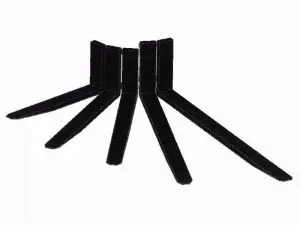By Mike Nelson, Posted in Forklift Attachments Forklift forks are the key components that support and lift pallets or other materials. They come in various designs and sizes, each suited to specific tasks. Whether you're handling standard pallets or oversized cargo, the right fork is crucial for efficiency and safety. Choosing the wrong fork can lead to instability, damage, or even accidents, which is why understanding interchangeability is so important. There are several types of forklift forks available, including standard, telescopic, pin-type, and block forks. Each has its own advantages and limitations. Standard forks are the most common, while telescopic forks offer adjustable length. Pin-type forks are easy to swap out, and block forks are built for heavy-duty use. However, just because they’re similar doesn’t mean they can be used interchangeably without checking specifications. Interchangeability depends on multiple factors, such as fork dimensions, mounting systems, and compatibility with the forklift model. Even if two forks look the same, differences in weight capacity, material, or attachment mechanisms could make them unsuitable for one another. It's also important to consider the forklift’s load capacity and operating environment, as extreme conditions can affect performance and safety. Safety should always be the top priority when using forklifts. Using incompatible forks can lead to serious risks, including equipment failure or injury. Regulatory bodies like OSHA have strict guidelines about forklift usage, and violating these rules can result in penalties or legal action. Always ensure that any fork you install is approved for your specific forklift model and intended use. To avoid issues with fork compatibility, follow these best practices: consult the manufacturer’s guidelines, check for proper fit and function, and perform regular maintenance. Training operators on fork selection and installation is also crucial. If you're unsure whether your forks are compatible, don't guess—seek expert advice. In short, not all forklift forks are interchangeable. While some may appear similar, differences in design, size, and functionality can make them unsuitable for use together. Always prioritize safety, compliance, and proper installation. If you're uncertain about your current setup, contact a trusted supplier for guidance. At Koke Inc., we specialize in custom forklift forks tailored to your specific needs. Our team can help you find the right solution for your operation. Contact us today at 800.535.5303 or visit our website for more information. We’re here to help you make informed decisions that keep your workplace safe and efficient. Hot Rolled Magnesium Alloy Plate Magnesium Alloy Plate,Hot Rolled Magnesium Plate,Hot Rolled Magnesium Alloy Sheet,Lightweight Magnesium Alloy Plate Luoyang Maige Magnesium Industry Co., Ltd , https://www.maigemagnesium.comAre All Forklift Forks Interchangeable?
 Forklifts are essential in warehouses and logistics operations, and the forklift forks play a critical role in lifting and moving heavy loads. But here’s the question: are all forklift forks interchangeable? The answer isn’t as straightforward as it might seem. Let’s take a closer look at what makes forklift forks different and how that affects their compatibility.
Forklifts are essential in warehouses and logistics operations, and the forklift forks play a critical role in lifting and moving heavy loads. But here’s the question: are all forklift forks interchangeable? The answer isn’t as straightforward as it might seem. Let’s take a closer look at what makes forklift forks different and how that affects their compatibility.The Role of Forklift Forks
Types of Forklift Forks
Safety First
Best Practices for Safe Use
Need Help Choosing the Right Forks?